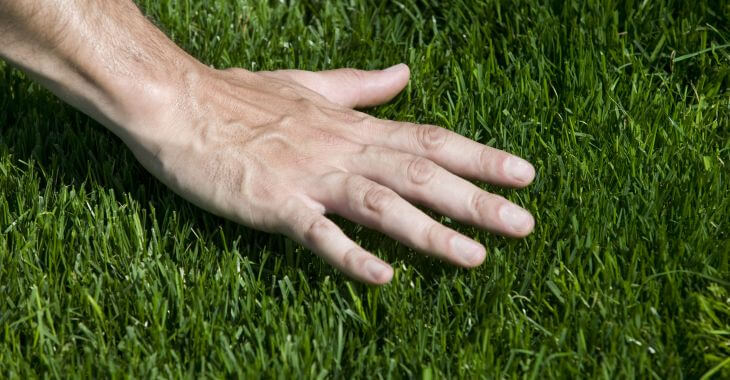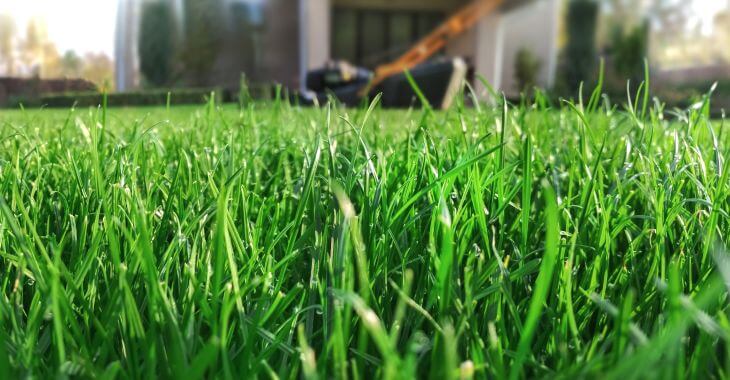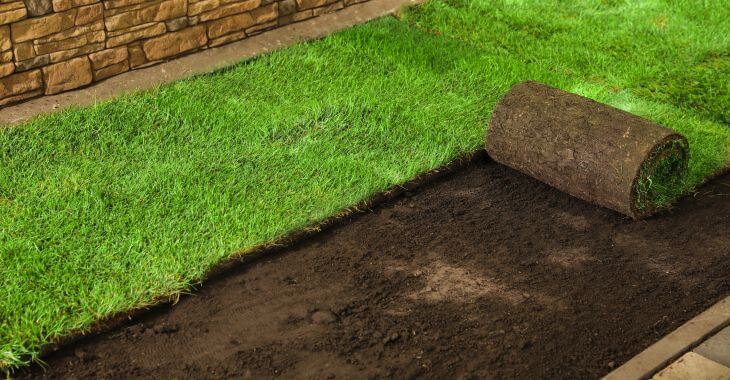Zoysia vs. Bermuda: Which is the Best Grass for Your Lawn?

Choosing the right grass for your lawn is essential for creating a beautiful, low-maintenance yard. Two popular choices are Zoysia and Bermuda grasses. Both have strengths and weaknesses and understanding Zoysia vs. Bermuda grasses can help you make an informed decision.
This article will compare Zoysia grass vs. Bermuda grass, examining their characteristics, benefits and challenges to determine which is best for your lawn.
Zoysia Grass: The Pros and Cons
Pros of Zoysia Grass
- Drought Tolerance: Zoysia grass is highly drought-tolerant, making it an excellent choice for areas with water restrictions or infrequent rainfall. It requires less water compared to many other grasses.
- Heat Resistance: This grass thrives in hot climates and can withstand high temperatures without suffering damage, making it suitable for southern regions.
- Shade Tolerance: Zoysia performs well in partial shade, which is beneficial for lawns with trees or areas that do not receive full sunlight all day.
- Low Maintenance: Zoysia grows slowly, reducing the need for frequent mowing. It also has a dense growth habit, which helps crowd out weeds and reduces the need for herbicides.
- Durability: This grass is tough and can handle heavy foot traffic, making it ideal for lawns that are used frequently for outdoor activities.
Cons of Zoysia Grass
- Establishment Time: Zoysia takes longer to establish than Bermuda. It can take several months to a year for a Zoysia lawn to fully develop, requiring patience and careful maintenance during this period.
- Cost: Zoysia sod and seed can be more expensive compared to Bermuda. The initial investment is higher, but it may pay off in reduced maintenance costs over time.
- Thatch Buildup: Zoysia is prone to thatch, a layer of dead grass that accumulates between the soil and the living grass. This can require periodic dethatching to keep the lawn healthy.
Bermuda Grass: The Pros and Cons
Pros of Bermuda Grass
- Fast Growth: Bermuda grass establishes quickly, often within a few weeks. This makes it an attractive option for homeowners who want a lush lawn in a short amount of time.
- Heat and Drought Tolerance: Like Zoysia, Bermuda is highly tolerant of heat and drought. It can survive and thrive in hot climates with minimal water.
- Cost-Effective: Bermuda seed and sod are generally less expensive than Zoysia, making it a budget-friendly choice for establishing a lawn.
- Aggressiveness: Bermuda’s aggressive growth habit helps it outcompete weeds and quickly fill in bare spots, resulting in a uniformly green lawn.
- Resilience: Bermuda grass can withstand heavy foot traffic, making it suitable for sports fields, playgrounds, and other high-use areas.
Cons of Bermuda Grass
- High Maintenance: Bermuda’s rapid growth means it requires more frequent mowing and edging. It can also invade garden beds and other areas where it’s not wanted.
- Poor Shade Tolerance: Bermuda needs full sunlight to thrive. It does not perform well in shaded areas, which can lead to thin or bare spots in the lawn.
- Invasive Nature: Bermuda’s aggressive growth can become a problem as it spreads into flower beds, sidewalks, and driveways. It requires regular edging and control to keep it contained.
Zoysia Grass vs. Bermuda: Which is Better?
The choice between Zoysia grass and Bermuda grass depends on several factors, including your climate, lawn usage, and maintenance preferences. Here are some key considerations to help you decide:
Climate
- Zoysia: Best suited for regions with hot summers and mild winters. It can handle partial shade, making it versatile for various lawn conditions.
- Bermuda: Prefers hot climates and full sun. It’s more suitable for regions with long, sunny days and can withstand extreme heat and drought conditions.
Lawn Usage
- Zoysia: Ideal for lawns with moderate to heavy foot traffic, such as family yards or areas with pets. Its dense growth makes it durable and resistant to wear.
- Bermuda: Excellent for high-traffic areas like sports fields and playgrounds due to its resilience and quick recovery from damage.
Maintenance
- Zoysia: Requires less frequent mowing and has lower water needs, making it a good choice for those seeking a low-maintenance lawn. However, it needs regular dethatching.
- Bermuda: Needs frequent mowing and careful edging to prevent it from spreading into unwanted areas. It also requires more water than Zoysia in extremely dry conditions.
Aesthetic Preferences
- Zoysia: Known for its dense, fine-textured appearance, providing a plush, carpet-like lawn. It stays green longer into the fall and greens up earlier in the spring compared to Bermuda.
- Bermuda: Offers a coarser texture but provides a vibrant green color during the growing season. It goes dormant and turns brown in cooler temperatures.

If you prioritize low maintenance, drought tolerance, and a plush lawn that can handle some shade, Zoysia might be the better option. However, if you need a fast-establishing, cost-effective grass that thrives in full sun and can withstand heavy use, Bermuda could be the right choice.
Ultimately, both Zoysia and Bermuda have their unique advantages and drawbacks. Assess your lawn conditions, maintenance concerns and aesthetic desires to make the best decision for your outdoor space.

